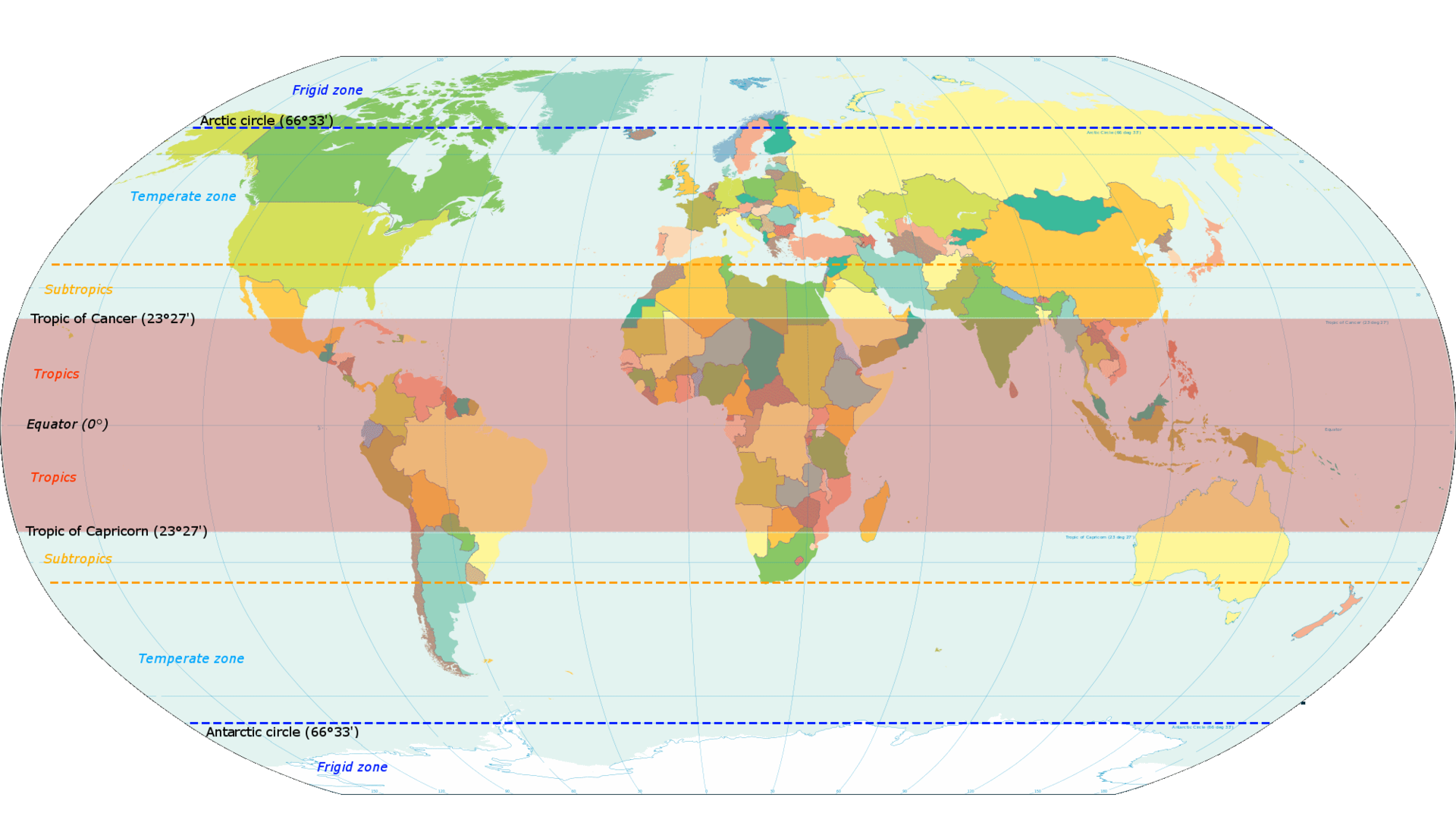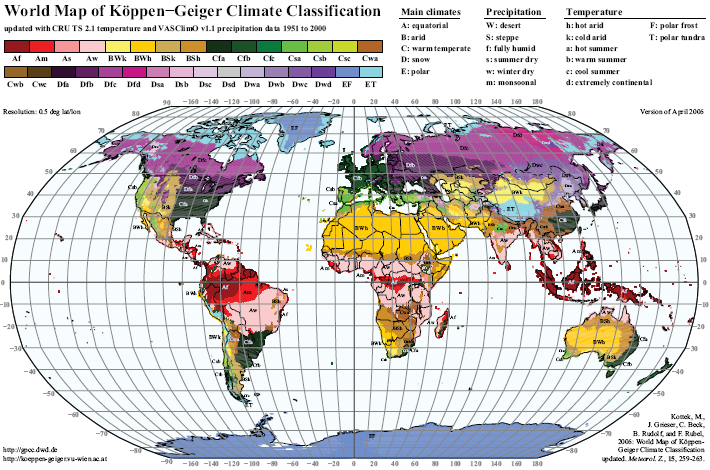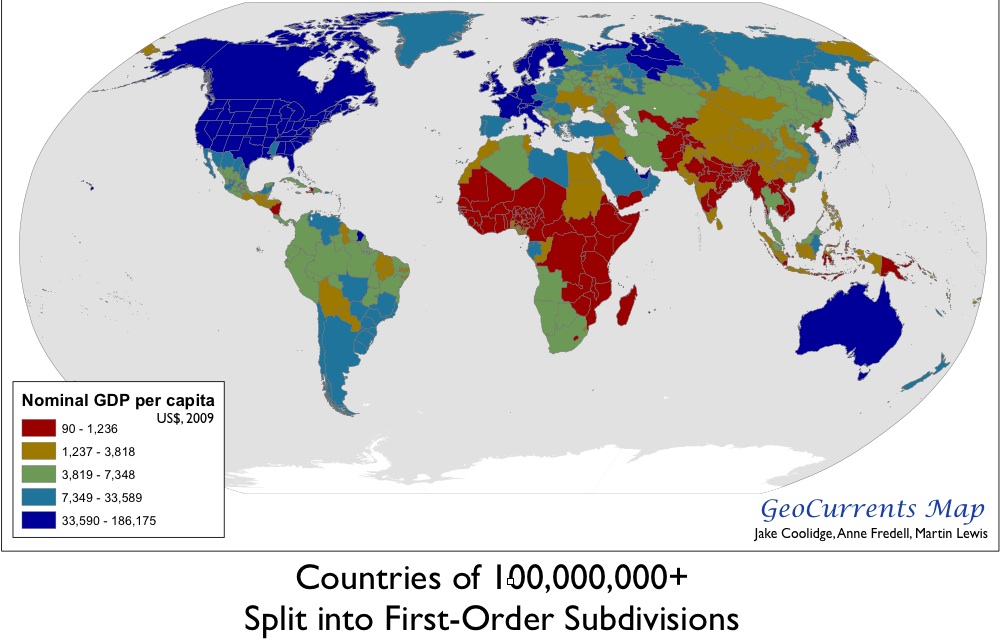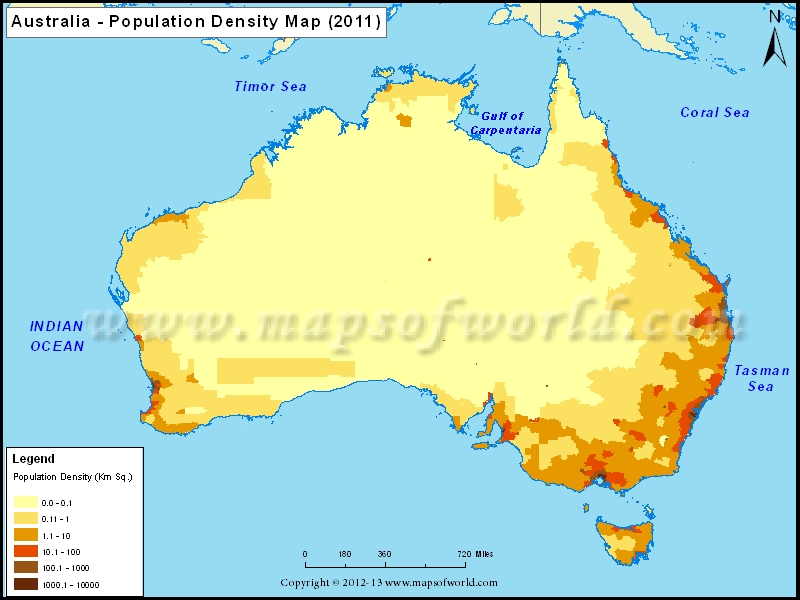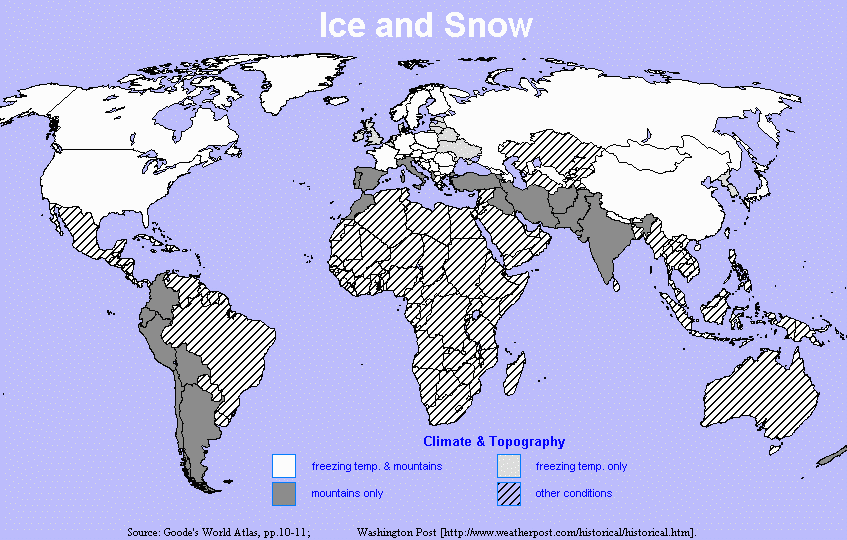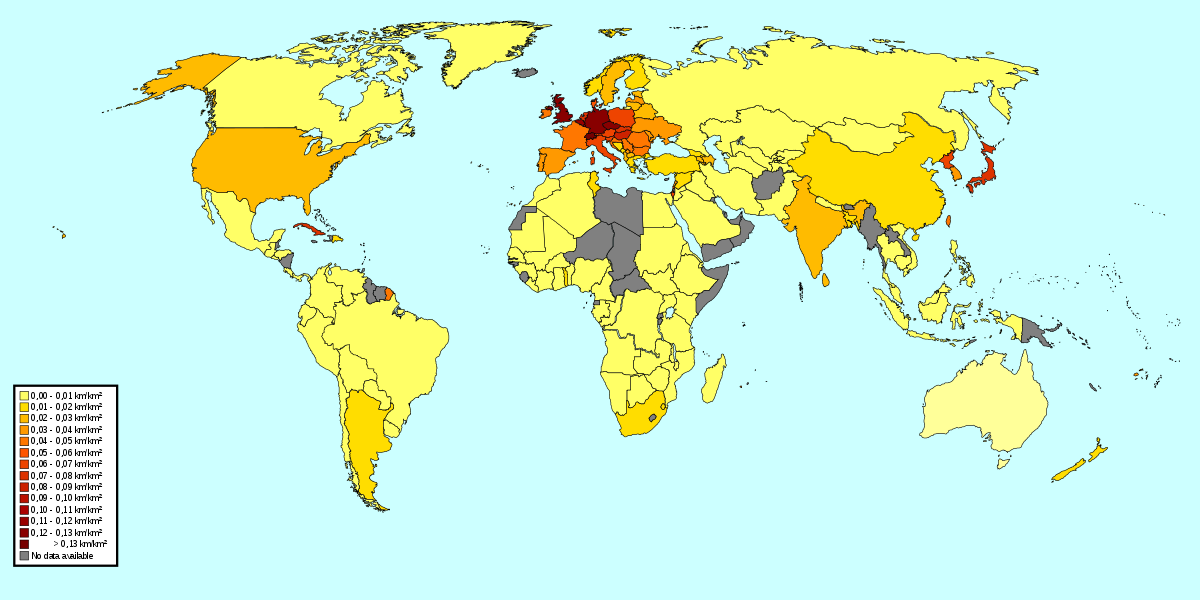T.E.D.'s answer is very good, and points to the most important issue: the difference between colonisation methods in North America vs Latin America. There are a few missing nexus that I feel could be explored in more depth, though.
But, first, as this is a question with very important political and ideological consequences, I also think it is necessary to dispell some (first-world-o-centric) fantasies about it, because those fantasies are widespread and noxious. So I will adress first what are not the causes of the differences between what went on North and South of Rio Grande, and only then proceed to a more encompassing explanation of the divide, which should show the actual place, if any, of the fantastic factors in the real order of things.
Not Democracy
There is a strong tendency to anachronically read modern contents into mediaeval forms. One such misreading is that of the role and meaning of mediaeval parliaments. Those were not democratic institutions, and were probably instruments of feudal reaction rather than of democratic progress. Some comments pointed to the fact that the Spanish Cortes were older than English Parliament; this fact - and its omission by those proposing a difference between a supposedly democratic mediaeval England and a despotic Spain - shows that this was not an actual factor; if there were differences in the internal workings of England, compared to Spain, they must rely elsewhere, not in the existence of a parliament - at least, not in the existence of a parliament as an early step in the path to democracy.
But the Cortes predating Parliament are far from being the only evidence that democracy in metropoles had little to do with the difference in prosperity and political stability North or South of Rio Grande. Absolutism was only toppled in England by the Civil war and the two 17th century revolutions. But it was toppled earlier in two other places in Europe, namely Switzerland and Netherlands. And while Switzerland, being landlocked, had not its own colonial enterprises, the Netherlands were quite a major player in the colonial game. And albeit being socially much more similar to England than to Spain (and arguably even more far apart from Spain), Dutch colonisation mostly resulted in hellholes similar if not even worse than Spanish or Portuguese colonies. Plus we can see that the same metropolis delivered very different results, if we compare New England to Jamaica (or even to Georgia), Quebec to Haiti, or Peru to Uruguay or Costa Rica.
And, last but not least, we must at least suspect that the early development of democracy, industry, and capitalism in England, as compared with Spain, may very well not be an independent variable. Was the belated development of democracy in Spain and Portugal a cause of the lack of prosperity of their American colonies, or is it, the other way round, a consequence of their colonial enterprise?
Somewhat relatedly,
Not Reformation
Other myth is that the work (and/or family) ethics of Protestantism (or more specifically Calvinism) would have resulted in more orderly and progressive societies than those that could be built under the hegemony of Catholicism. Again, the Netherlands are the counter-example that shows that this is not possible; while England was only very partially Calvinist (with a State Church that mixed elements of Catholicism and Calvinism, and a strong Catholic minority, the Netherlands were quite the Calvinist country, which didn't help Surinam or Java too much.
And, of course, albeit the many flaws of Catholicism, it is certainly not an ideology that promotes idleness or debauchery.
So, if work or family ethics have to do with differences between North and South (and I do think they do), such work or family ethics must be related to something else besides the religion of colonists.
Then we need address the apparent opposite of these social or political explanations. If not in the internal workings of European metropoles, could the key to the problem be in geographical factors?
Climate, yes, but not like that
Then there is the myth of the intractability of tropical climate, as put in a previous answer:
difficulty of colonizing areas in tropical/subtropical climates vs. colonizing temperate areas
That this is clearly not the case can be easily shown by the fact that Latin America was colonised a century before North America. Moreso, far from an inferno of tropical diseases, the whole "new world" was an epidemiological paradise. None of the main epidemic killers - malaria, smallpox, plague, cholera - were even known in the Americas: they were all brought from Europe, in which, the temperate climate of the area nonwhitstanding, they had been killing millions of people for hundreds of years. The plague alone, during its 1348 outburst, killed about one third to one half of the European population of the time. Those diseases may have originated in the tropics, and they certainly were eradicated later in the tropics than in temperate areas (where they were by the way defeated in the 19th century, by no means in the 16th), but to imagine that climate provides an effective barrier against their spread North of the Tropic of Cancer is false, and very contrary to historical evidence.
Plus, latitude is not the only factor in determining climate; altitude also counts and makes the climate of most of the western parts of Souther America, as well as Mexico, quite cool and even chilly - but neither Mexico nor the Andes correspond to any pockets of prosperity or political stability.
So climate played an important role in the differencen between North and South America, but not by making South America a hostile place for European colonists. The opposite, as will be argued below, is true.
Now we need to have a look at the internal workings of the colonies themselves, rather that those of the metropoles. The issue of slavery comes to mind.
Slavery, most certainly - but not exclusively
One other possible explanation is the institution of slavery, which was overwhelming in Brazil and the Caribbean, and that must account for at least part of the differences between North and South America.
One problem with this is that slavery's geographical distribution doesn't really fit the divide between North and South. It was not present in the Andean region, which remains among the poorest subregions of Southern America, and was conspicuously present in English America's southernmost parts. That slavery does hamper prosperity and political stability is quite demonstrated by the fact that the regions of the United States where it was widespread remain the poorest parts of the country, and by the fact that the most important political upheaval in the independent United States was a Civil War intimately linked to the "peculiar institution". But in the absence of other factors, the dividing line between prosperity and misery would be different, and more similar to a meridian than to a parallel, separating Brazil, the Guyanas and the Caribbean, and American Old South from the western part of both South and North America.
So now we are prepared to give a more positive answer. Without necessarily ignoring the internal workings of the metropoles and their colonies, or geographical factors such as climate, we need to look at the specific relation between metropolis and colony, for there is the main difference, and the factor that can illuminate the aspects discussed above, and put them into their due place within the complex mechanism that generated two rich first world countries, one of them a global power, North of the Rio Grande, and a score of poor and very poor third world countries South of it.
That is, we must now take a look at what is called
The Colonial Pact
The problem with any explanation that seeks to root the differences between Latin America and Anglo-America at the differences between England, on one hand, and Spain and Portugal, on the other, is that never mind how powerful and despotic the latter may have been, it was clearly physically impossible for them to exercise any kind of power over their American possessions directly from their metropolitan sieges. They needed rely on the loyalty of a layer of local merchants and landlords, and that layer would need to be allowed some latitude at making revenue from the colonies, so that the metropolis could profit either. That meant a great deal of local self-government, expressed in the cabildos and senados da câmara (which by they way constituted a direct continuation of the longstanding municipalist tradition in the Iberic peninsula - the absolutist monarchies of Portugal and Spain were never unstructured despotisms from above, but rooted firmly on the grounds of the landed aristocracy and the estamento mercantil).
This pact was the only way that the metropolis could exert real power in the colonies. But it rested on the possibility of extracting a great economic surplus in the Americas, and that possibility, in turn, was a function of the availability of commodities that were scarce or of difficult production in Europe. And those were to be either precious metals or tropical agricultural products.
Spain found that quickly, in the fabulous mines of Mexico and the Andes; Portugal had to build that by putting up a local agriculture and manufacture of sugar (in which it was followed by all Caribbean colonial powers, England, Netherlands, France, and Spain itself).
But either gold/silver/platinum mining or sugar (or cotton, tobacco, etc.) plantations demanded large properties, not small farms, and so the social structure of South and Central America, Mexico and the Caribbean - including the non-Iberic settlements - has been extremely inegalitarian from its start. This fitted well with the necessity of relying on a local social layer for political support for the respective Crowns. Huge properties were granted to loyalists and in turn granted their loyalty. This allowed Portugal and Spain to acquire immense wealth from their colonies, and this wealth in turn helped consolidate the power of their kings, the absolutism of their regimes, and the backwardness of their own social structure.
North America didn't offer England (or the Netherlands, or France) any similar possibilities. Precious metals were only discovered there in significant amounts after independence, and, being of temperate climate, the region couldn't, with the exception of the Old South, base an agriculture that produced goods that weren't easily produced in Europe itself. Animal extraction of fur was insufficient for a significant extraction of surplus, and unsustainable in the long run. And so North America was seen either as a direct territorial expansion of the mainland, or as place to send undesirables. And the "undesirables" of England or France were very different from the "undesirables" of Portugal or Spain. The latter never had significant presence of Protestantism, and expelled or forcibly converted their Jews before the colonial effort. But England and France were internally torn apart by religious dissidence, and America offered a exhaust valve for this problem. And this helps to put Reformation's role in the issue in perspective. It is not that the work or family ethics of protestantism was transported into North America, but that internal religious strife provided England and France with populations that were willing to try the luck in a new world - and also had "good" family and work ethics. In less religiously diverse Spain and Portugal, the population available for overseas adventures was much less family-oriented: marginalised populations, adventurers, "second sons" of the nobility. As a result, Portuguese and Spanish colonists didn't come here in families, but as individual lone males.
Similarly, this puts the "democracy" argument in its correct place. Late mediaeval/early modern England was not more "democratic" than Spain; but a displaced population of religious dissidents owning small farms and being basically egalitarian, with little social stratification, could, and probably needed, to build correspondingly democratic local self-government.
Conversely, while the English Parliament was not a democratic institution, it was a strong institution, that prevented England from developing a strong absolutism, comparable to that of Portugal, Spain, or France. This in turn made the English Crown much less able to control and subdue its American dependencies than Portugal or Spain. When, much later, under George III, England found the resolve to try and impose unto its American colonies rules similar to those that Portugal and Spain had been imposing to their dependencies, they were unable to do it, and instead provoked the independence of the whole region.
This puts also the slavery piece of the puzzle into its place: while the peculiar institution certainly acted as a strong brake to the development of societies it affected, its role was subordinate to the relation between metropolis and colony. Where the metropolis could impose a strict colonial pact, slavery imposed itself, as an easy expedient to muster huge numbers of workers subordinate to a small number of masters loyal to the crown. Where fore other reasons it was impossible to instate slavery, but the social structure was nonetheless extremely inequal - as in the Andes, where other forms of forced labour, more similar to serfdom, were the norm - its absence was not enough to avoid the underdevelopment of the region. Where slavery predominated but wasn't tied to a strict colonial pact, as in the Southern United States, its presence was insufficient to stop the development of a local ruling class relatively independent of the metropolitan centre. When later it became a hindrance to the capitalist development of the North, it was destroyed through war.
And so we can also deal with the role of climate. Far from obsting the colonisation of South America, its tropical climate made it easier, and more profitable, providing the relevant European powers with a foreign base to produce foreign goods, which could find excellent prices in Europe. It provided South and Central America with an economy that was complementary to Europe's.
That immediate prosperity, unfortunately, was not a boon, but a disgrace to the regions aflicted by it, because it originated a social layer of large proprietors, entrenched in privilege and willing to subordinate their countries to foreign rule as long as that rule preserved their privileges.
Conversely, where the temperate climate matched with a metropolis that could or needed get rid of significant numbers of population, colonies with a more democratic structure and more loose ties to the metropolitan centre developed. Where temperate climate didn't match this, as in Uruguay, Chile and Argentina, the local structures were similar to those in the tropical area, though much more sparsely populated (Uruguay is about the same size of the the Brazilian southernmost state of Rio Grande do Sul, and albeit an intensive drive on immigration to increase its population in the late 19th century, it still has a population corresponding to a third of that of Rio Grande do Sul). The apparent prosperity of Uruguay and Argentina in the early 19th century was correspondingly delusional, resting, as the economy of all of South America, on the export of primary products - in their case, meat.
In contrast, where the tropical climate, exceptionally, wasn't coupled with the rise of a colonial compradora elite, as in the case of Costa Rica, a less inequal and more stable society arised, and probably was unsuccesful at the development of a local independent capitalism due to its small size, rather than by climate or the other problems that plague Latin America.
Finally, no account of Latin America's problems is complete without referencing what axsvl77 exposes in his answer: active foreign intervention directly intended to hamper development. While this cannot be an original cause of lack of prosperity, since it evidently relies on the disparity in prosperity first place, it reinforces the problem - and is a direct and important cause of political instability, from the military interventions in Nicaragua, Cuba, Dominican Republic, to the more subdued and concealed support for internal coups as in Chile, Brazil, Paraguay, Argentina, Venezuela, etc. Such support for undemocratic forces by the most important democracy in the world isn't peculiar to Latin America, though: the same apparently irrational behaviour is repeated, in aggravated forms, in the Middle East. And it cannot be blamed on ignorance alone: where the United States were serious about helping their allies, as in Japan and South Korea, they knew better than relying on the military, the landed oligarchies, or the clergy, and instead pressed for land reforms, limitation of the military role in society, and secularism.
